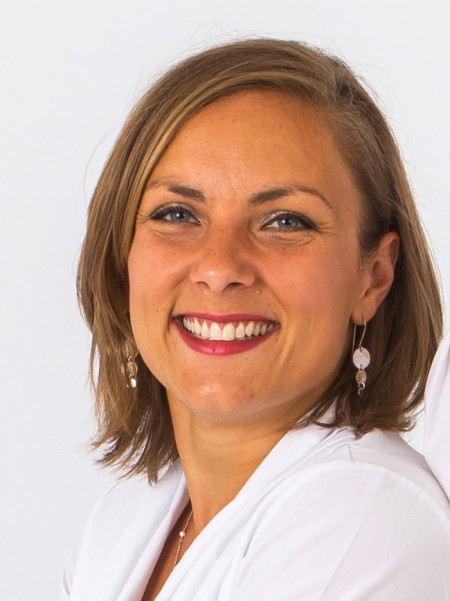
Dr Casey Hamilton
Lecturer/Staff Tutor
Biography
I am a developmental & social psychologist whose research programme, using a Critical Disability Studies (CDS) lens, aims to contribute towards the understanding of lived experiences of neurodiversity, particularly within educational contexts, as well as how we can develop a more inclusive society. Within UK schools this often explored within Special Educational Needs and Disability (SEND), as a chartered psychologist I draw from humanistic and phenomenological approaches to develop qualitative and quantitative methods to work with children within and beyond schools.
PhD thesis – ‘An Interpretative Phenomenological Analysis of the Lived Experiences of Children with Dyspraxia in UK Secondary Schools’.
Using a qualitative approach with an interpretivist framework I explored the lived experiences of children aged 11 – 17 with dyspraxia in education. Using Interpretative Phenomenological Analysis (IPA) themes were identified and then analysed through a Critical Disability Studies (CDS) lens. This revealed experiences of cognitive dissonance; corporeal or embodied experience; psychoemotional disablism; internalised oppression; and distributed competence. Drawing on concepts from humanistic psychology, particularly Abraham Maslow's (1943) hierarchy of needs and Carl Rogers (1951) core conditions of worth, I argue that in education these young people’s experiences negatively affect their psychological development and development of self.
My research work began through collaboration, as Research Assistant, at UEL, on a on a number of large-grant research projects funded by (ESRC, EPSRC, CEDEFOP, Nominet). These focused on social justice within different educational contexts, including Vocational Education and Training (VET), careers education, early years education and childcare and disaster education.
My educational research then focused on SEND and disaster education. Specifically, on developing resources for people with autism as well as for organisations to develop understanding about how people with autism are impacted during such events and how best to support them. (https://masspopulationresponse.weebly.com/autism--disasters.html)
I have collaborated on work which explored childhood bereavement support in schools, calling for a national bereavement policy and and argue that this phenomenon could be considered under the Special Educational Needs framework to support children dealing with bereavement. (https://www.bera.ac.uk/blog/childhood-bereavement-a-call-for-national-policy-that-considers-young-peoples-views)
Currently, I am exploring experiences of neurodiversity within Higher Education, to understand what impacts progression and success, and what the psychological impacts may be as well as developing further research into childhood experiences of neurodiversity.
Teaching interests
I have worked in Higher Education since 2009, and I am currently the Module Chair for a postgraduate module DD801 Principles of Social and Psychological Inquiry which is the first module for PG studies into MSc in Forensic Psychological Studies (F73), MSc in Psychology (F74), MA in Crime & Justice, (F75), as well as MA/MSc in Open Studies (F81) and the module leading to a PG (Cert) in Social and Psychological Inquiry (K26).
I am particularly interested in developmental psychology, social psychology and educational psychology to this end I am involved in the presentation of the following undergraduate modules;
D110 Exploring psychological worlds: thinking, feeling, doing
DE200 Investigating Psychology 2
DE300 Investigating Psychology 3
Research interests
I am a qualitative researcher, and I am happy to receive inquiries for PhD students, and collaborations on the following research areas;
- Special Educational Needs and Disability (SEND)
- Neurodiversity
- Experiences of difference, particularly in education
- Social Justice
- Developmental psychology
- Early childhood development
Impact and engagement
- Invited conference presentation, June 2024, ‘Talking with children about death, dying and grief in UK schools’, as part of the Open Thanatology Conference, The Open University with my co-presenter Dr Maya Abraham-Steele.
- Public lecture in the Southwest region of England in 2023 on ‘Neurodiversity and dyspraxia – a psychological perspective’ as part of a community event titled ‘Neurodiversity: Theory, Research and Lived Experience’.
- BERA Blog post September 2021, ‘Childhood bereavement: A call for national policy that considers young people’s views’ https://www.bera.ac.uk/blog/childhood-bereavement-a-call-for-national-policy-that-considers-young-peoples-views
- Invited keynote lecture for YCT Feb 2016 . 'Dyspraxia: Hidden DiFFability'.
- Autism, critical infrastructure failure and emergency preparedness project – ESRC impact uplift grant. https://masspopulationresponse.weebly.com/autism--disasters.html I adapted and designed resources: ‘What If? I have autism’ book, an ICE card, a comic resource ‘Infrastructure failure! How would people with autism react?’ and two information videos ‘Telecoms infrastructure failure and the impact on people with autism’ & ‘Gas infrastructure failures & the impact on people with autism’. Project & resources were launched at an event held at Essex County Fire and Rescue HQ on the 23rd November 2015 in collaboration with Essex Civil Protection and Emergency Management (ECPEM).